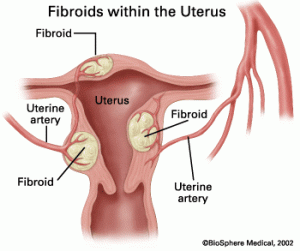 An Overview of Uterine Fibroid Treatment with Robotic Surgery
An Overview of Uterine Fibroid Treatment with Robotic Surgery
It’s a medical fact that most women, regardless of age, will experience a gynecological health problem, such as uterine fibroids, at one time or another in their life. Most of these conditions result in minor symptoms that can easily be treated, while others may require prompt medical attention or possibly even surgery. According to a Plano, Frisco and Dallas, Texas area group of gynecologists, Women’s Specialist of Plano, “Many women will experience bouts of cramping and menstrual bleeding throughout their reproductive years. While it is normal for women to have pelvic pain and menstrual bleeding during their normal menstrual cycle, it is not common to have pain and bleeding so severe that it disrupts the normal activities of life. This almost always signals an underlying health problem that should be assessed by a skilled gynecologist.” The skilled physicians at Women’s Specialists of Plano are available to provide uterine fibroid treatment with robotic surgery, as well as other innovative treatment options.
Persistent and consistent symptoms that normally raise a red flag include:
- Painful, severe cramps and pelvic pain
- Persistent pelvic bloating
- Intense pelvic pressure
- Abdominal tenderness
- Pain during urination or intercourse
- Heavy, ongoing bleeding outside of a normal menstrual cycle
The symptoms listed above can occur alone, or in combination with each other. Most often, these symptoms may indicate:
- Uterine Fibroids: Non-cancerous (benign) tumors of solid muscle tissue that develop in the uterus
- Uterine Cysts: A fluid filled sac found in the pelvis that usually originate in the ovaries
- Uterine Prolapse: When the uterus falls or descents from its normal position into the vaginal area
- Endometriosis: A condition where the cells from the lining of the uterus grow in other areas of the body
- Cervical Cancer: A disease that forms when cancerous tumors develop and grow in the cervix
- Uterine Cancer: A disease that forms when cancerous tumors develop and grow in the uterus
- Menorrhagia: Very heavy, abnormal menstrual bleeding
- Dysmenorrhea: Very painful periods, excessive menstrual cramping and pelvic pain
When a woman has been diagnosed with one of these gynecological conditions, if the symptoms are severe enough, surgery by way of a hysterectomy may be the best recommendation and often yields effective outcomes. A hysterectomy is a surgery in which the uterus is removed. This can be done partially or in full. Today, many gynecologists are turning to a minimally invasive approach to performing a hysterectomy by using the da Vinci robotic surgical system. While the robotic surgery technique is still considered relatively new, it is becoming a popular alternative for women throughout the Dallas, TX area as they contemplate the right hysterectomy approach to take.
Robotic surgery has been effective in the treating conditions that cause uterine fibroids, uterine cysts, endometriosis, and other gynecological symptoms. According to Dr. Murray Fox, a Dallas, TX gynecologist and an early robotic surgery pioneer, “Increasing numbers of women are choosing this approach when faced with a myomectomy (uterine fibroid treatment) or hysterectomy (the full or partial removal of the uterus), for example. Robotic surgery continues to result in excellent clinical outcomes, while offering patients an overall easier recovery period.”
 The technology of the da Vinci robotic surgical system uses very tiny incisions allowing surgeons to use miniature instruments and a 3D camera and microscope to view the inside of the uterus and operate with precise movements. While the arm of the robot does the actual movement, the surgeon is responsible for controlling and directing these moves with absolute accuracy and precision. The approach leaves minimal scarring and reduces the loss of blood, pain, and overall trauma that historically accompanies an open hysterectomy.
The technology of the da Vinci robotic surgical system uses very tiny incisions allowing surgeons to use miniature instruments and a 3D camera and microscope to view the inside of the uterus and operate with precise movements. While the arm of the robot does the actual movement, the surgeon is responsible for controlling and directing these moves with absolute accuracy and precision. The approach leaves minimal scarring and reduces the loss of blood, pain, and overall trauma that historically accompanies an open hysterectomy.
Not all gynecological practices in the Dallas, Texas area have adopted the robotic surgery approach. Despite the revolutionary advancement, it is a big investment with a large learning curve. The gynecologists with the Women’s Specialists of Plano state, “It will only be a matter of time until the robotic way is the only way. We have seen the difference it has made in the hundreds of patients that have walked through the doors of our North Dallas practice. It is revolutionary to say the least.”
For additional resources on uterine fibroid treatment options, such as robotic surgery, please contact the Plano, Frisco and Dallas, Texas area physicians at Women’s Specialists of Plano.
